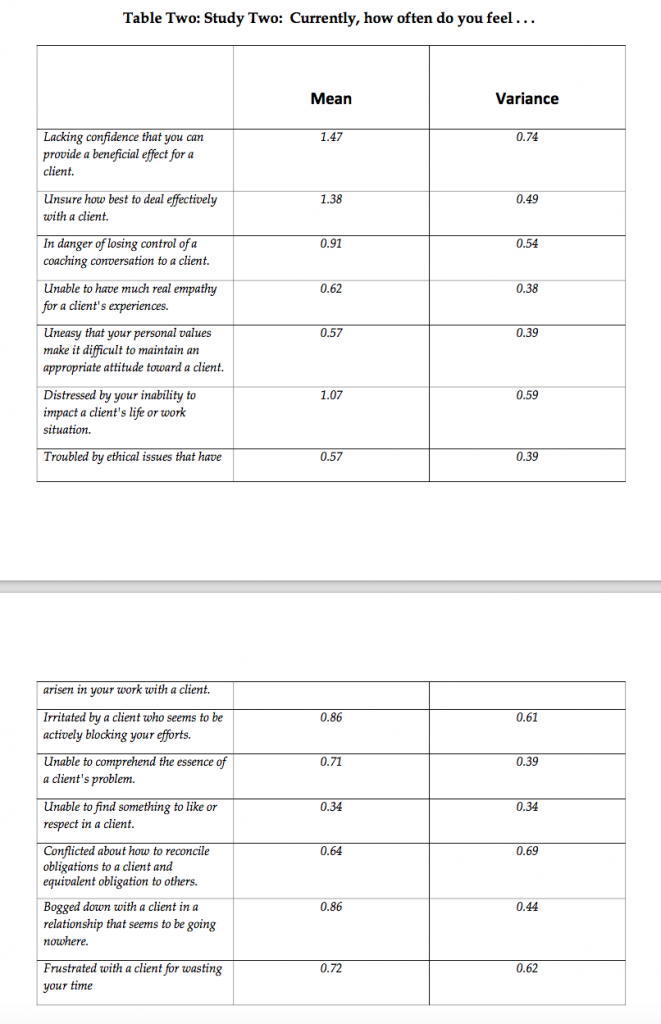
Second, we present the means and variance scores for the same question as it was posed in the second survey — six years later.


Second, we present the means and variance scores for the same question as it was posed in the second survey — six years later.

The Library of Professional Coaching, in collaboration with choice, the magazine of profes…
Rey Carr
December 17, 2015 at 4:00 pm
The best part of this report of the results of these two surveys is the discussion of the concepts. Such discussion is valuable regardless of the reliability or validity of the results (or evidence).
Unfortunately, the methodology section is missing the most important aspect of methodology: how were each of the surveys distributed and what was the rate of return. If, as I suspect, this was an Internet-based survey, then the results have an exceptionally low chance of being either reliable or valid. That is, the likelihood that they reflect the “coaching industry” or “a typical coach” is incredibly small. Thus, conclusions based on the results are suspect.
But there’s the point. The discussion itself has its own reliability and validity independent of the survey. The points made are worthy of continuing discussion regardless of the surveys.